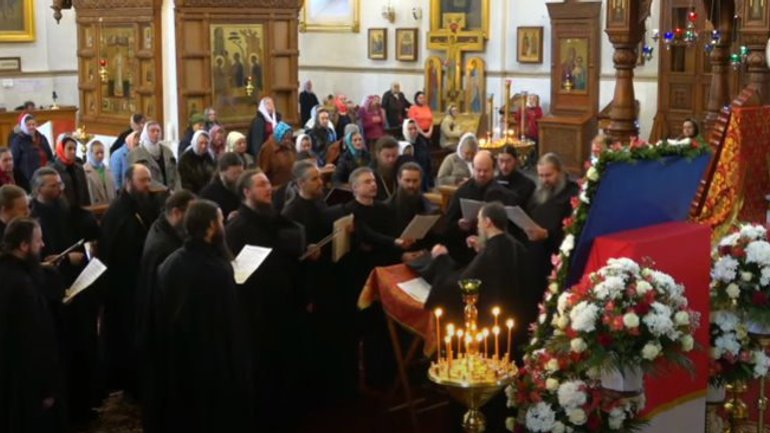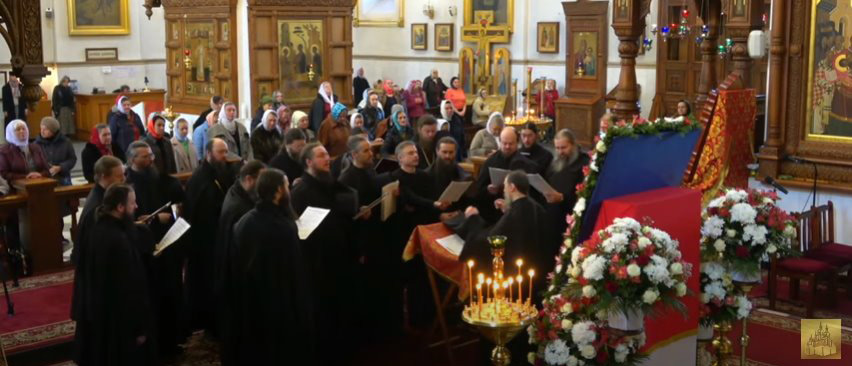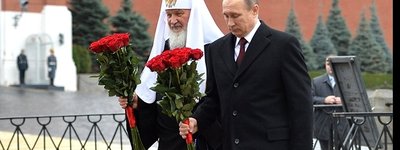Is the Russian Orthodox Church Really Pro-Life?

The Russian Orthodox Church has attracted Christians from countries like the United States because of its pro-life statements. One would expect that its supporters in Ukraine deal with the Coronavirus in a manner consistent with this position.
It has been remarked that while the Moscow Patriarchate has generally followed state quarantine requirements in Russia, some of its supporters in Ukraine have resisted the regulations of the Ukrainian government. Most notable, and tragic, was the conflict between the civilian authorities and the monks of the Kyiv Caves Monastery. Several monks contracted Covid-19 and one has died. It is difficult to tell whether the attitude of some clergy of the “Ukrainian Orthodox Church” under the Moscow Patriarchate (formerly, and accurately, known as an exarchate of the Russian Orthodox Church) is motivated by a kind of religious fundamentalism, or a determination to resist the Ukrainian government and sow chaos. Perhaps both.

Sviatohirska Lavra April 21, 2020
On the issue of the Coronavirus, two opposing tendencies have emerged worldwide. One is to focus entirely on stopping the spread of the disease. This means not only the kind of social distancing recommended by most religious authorities, but closing churches altogether. It also means shutting down all but “essential” businesses (however the authorities choose to define that) for the long term. The reasoning seems to be that as long as there is no vaccine against the virus, and its trajectory remains unpredictable, it is safest to take the most extreme measures to limit its spread.
This approach has been criticized because its devastating economic consequences could actually hamper our ability to fight the disease. It is obvious, for example, that economic activity related to the health care field needs to be supported and expanded, not limited. Maintaining and delivering sufficient food supplies is likewise important in the struggle against the Coronavirus. More broadly, a weakened economy would jeopardize medical and public health efforts themselves.
Others point out that there are other illnesses that take more lives, but which have not prompted such drastic measures. Taken to the extreme, after all, such measures would require permanent social distancing and an end to physical human contact altogether. Some Catholic commentators have also pointed out the philosophical underpinnings of the radical approach. Modern society, they note, tends to believe that sickness and even death are merely technical problems, which science can eventually solve. This illusion, which rejects the Christian understanding that sickness, suffering, and death are inevitable, underlies the determination to take the most radical measures possible until the Coronavirus is defeated. It bespeaks a kind of apotheosis of science, promising an ersatz salvation displacing religion.
The other extreme is the “fundamentalist” position taken by some Russian and other Orthodox hierarchs, and a few adherents of other faiths. It entails opposing practically any adjustments to religious practices for the sake of public health. The reasoning behind this seems to be that since the spiritual is superior to the mundane, the truly faithful must not make any concessions that interfere with divine worship. This means not only that churches must remain open, but that the faithful should continue to congregate at public services and engage in pious practices like kissing icons. It also means that cenobitic monasticism must continue unmodified, as at the Caves Monastery in Kyiv. Resistance to scientific knowledge and common senses become a mark of fidelity.
But is such a position pro-life? If Christians defend the right to life of the unborn, as well as of the elderly and the disabled, can they consistently oppose measures to protect public health and safety? One can, of course, make a distinction between a practice like abortion or assisted suicide, which directly destroy human life, and the refusal to take sanitary measures, which may or may not have the indirect effect of somebody becoming infected with a potentially fatal disease. Nevertheless, concern for human life requires taking reasonable precautions against the spread of a disease that is spreading very rapidly, has taken over 170,000 lives worldwide, and for which there is no known cure. In fact, it is precisely the Catholic Church, known for its pro-life stance, that has endorsed strict public health measures to combat Covid-19, both in Ukraine and elsewhere in the world. The autocephalous Orthodox Church of Ukraine and most religious leaders in that country have asked their faithful to follow the government’s health directives. The religious groups’ measures are not extreme. Churches can still be open at certain times so that individual believers may visit them, for confession for example, while maintaining appropriate social distance.
The Russian Orthodox Church has attracted Christians from countries like the United States because of its pro-life statements. One would expect that its representatives in Ukraine deal with the Coronavirus in a manner consistent with this position. They have not done so.










